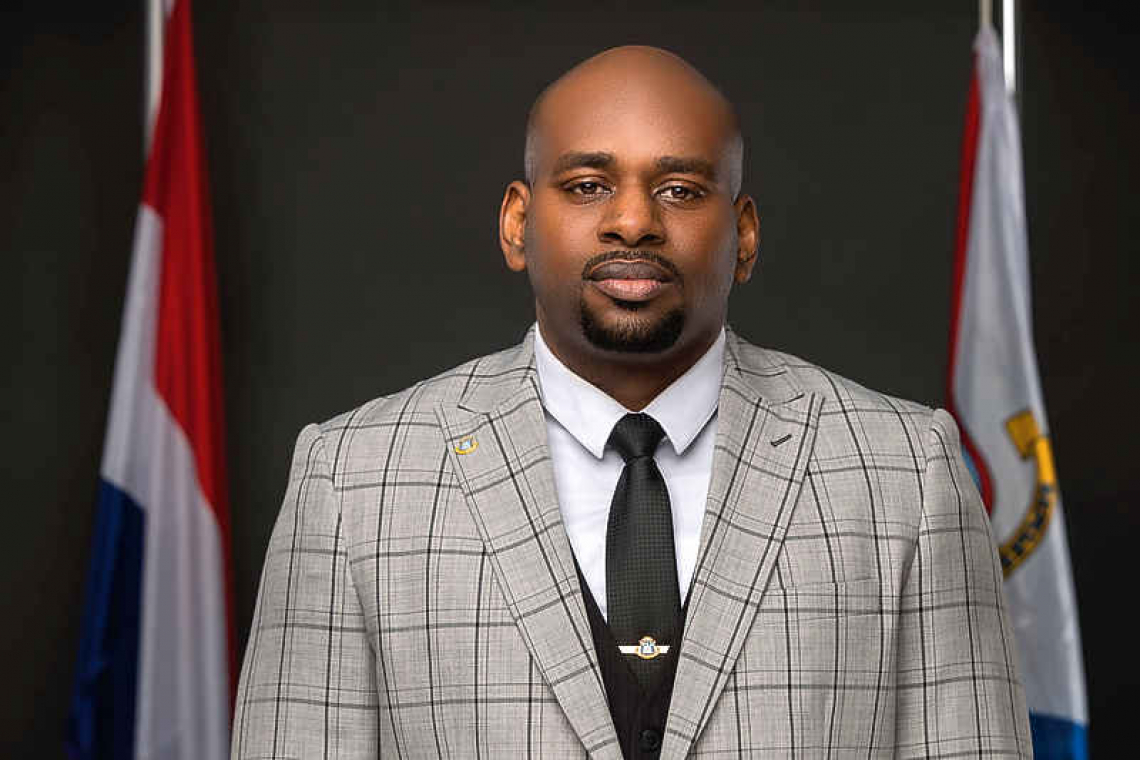VSA Minister Omar Ottley
PHILIPSBURG--Minister of Public Health, Social Development and Labor VSA Omar Ottley confirms a reduction in the self- isolation period for asymptomatic persons from ten to seven days, in a decision he says could help address current staffing issues.
Ottley said that after consultation with Collective Prevention Service (CPS), considering the United States Centers for Disease Control and Prevention’s (CDC’s) new guidelines and after garnering the necessary information, he has decided to reduce the COVID-19 isolation time to seven days. Ottley emphasised that it is critical that persons continue to wear well-fitting masks and take additional precautions after leaving isolation or quarantine.
The new COVID-19 isolation rules do not apply to health care personnel, persons who are immunocompromised and those with severe to critical illness. They will apply to the general population in the community, including workplaces and schools.
Health care personnel will follow the COVID-19 isolation guidelines implemented in their workplace, as their guidelines depend on the situation at the time. (e.g. contingency, crisis, etc.)
Ottley said other countries such as the United Kingdom have already reduced their isolation period after CDC announced that the isolation period was reduced to five days. However, he opted to be on the safe side and reduce the isolation period to seven days instead, which is a middle point between the previously established 10 days and the newly established five-day period.
Persons who are not suitable for shorter isolation and quarantine periods are children less than 2 years of age, individuals who are unable to wear a mask, persons who have moderate or severe illness and persons who are immunocompromised.
Persons who must isolate are persons who have a positive viral test for COVID-19, regardless of whether or not they have symptoms; persons with symptoms of COVID-19, including people who are awaiting test results or have not been tested; and persons with symptoms even if they do not know if they have been in close contact with someone with COVID-19.
According to the guidelines set, persons must isolate for seven full days from the date of the first symptom. Isolation ends if fever-free for 48 hours without the use of fever-reducing medication and if other symptoms have subsided.
After ending isolation persons should continue to wear a well-fitting mask around others at home and in public, avoid travel until a full 10 days after the first day of symptoms and avoid eating around others at home and at work until a full 10 days after the first day of symptoms.
Persons who are up to date on their COVID-19 vaccines and who had confirmed COVID-19 within the last 90 days do not need to isolate/quarantine.
Wear a well-fitting mask around others for 10 days from the date of last close contact with someone with COVID-19 (the date of last close contact is considered day zero). Get tested at least five days after close contact with someone with COVID-19. If the test is positive or you develop symptoms, they must isolate.
Persons who are unvaccinated or have not been fully vaccinated are advised to stay home and away from other people for 10 days after last contact with a person who has COVID-19. The date of the last close contact is considered the start date.
These persons should continue wearing a well-fitting mask when around others.
Monitor for COVID-19 symptoms for 10 days after last close contact with someone with COVID-19. If symptoms develop, get tested immediately and isolate until the test result has been received. If the test is positive, follow isolation recommendations. If symptoms do not develop, get tested at least five days after last close contact with someone with COVID-19. If the test is negative, you can stop quarantine, but continue to wear a well-fitting mask until 10 days after your last close contact.
If you are unable to get tested, you can stop quarantine after day 10 if symptom-free throughout the 10-day period, and you should continue to wear a well-fitting mask when around others at home or in public. End isolation if fever-free for 72 hours without the use of fever-reducing medication and other symptoms have subsided.
Ottley ended by stating that these changes facilitate individual social and well-being needs, return to work, and maintenance of critical infrastructure and the economy. “Shorter isolation/quarantine periods focus on the period when a person is most infectious and continuation of layered prevention strategies is key to preventing COVID-19 and decreasing transmission within the community,” he said.







